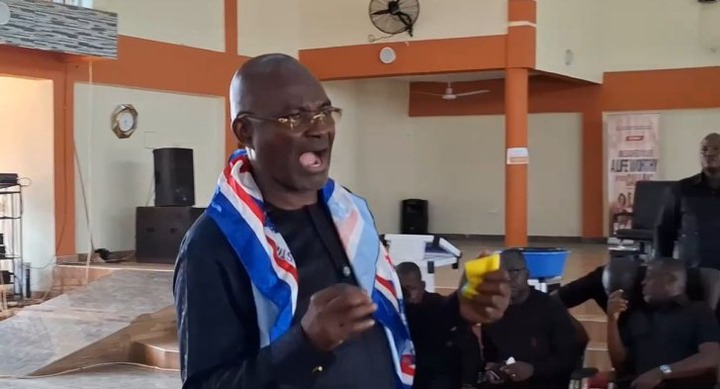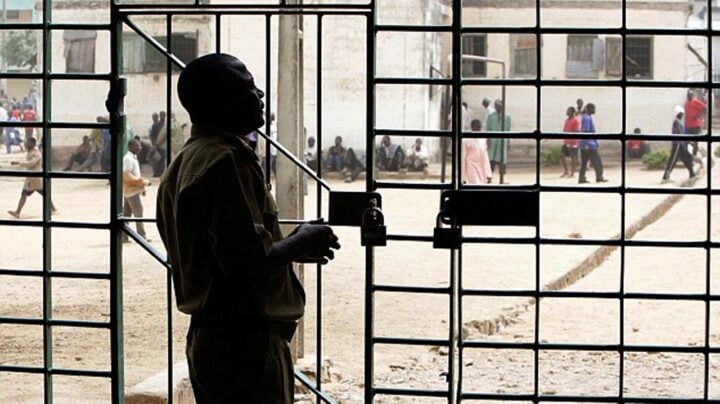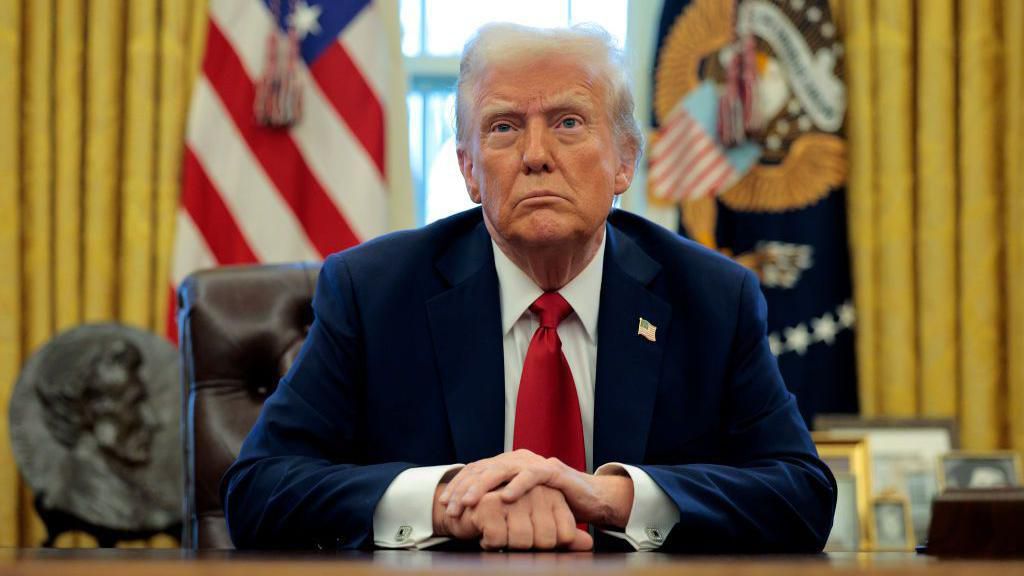New U.S. Travel Ban Impacts Multiple Nations, Sparks Global Reactions

On Monday, June 9, 2025, a new travel ban enacted by U.S. President Donald Trump took effect, significantly impacting citizens from 12 predominantly African and Middle Eastern countries and imposing restrictions on seven others. This policy, a revival and expansion of controversial first-term measures, has ignited a firestorm of debate, pitting the administration's stated national security concerns against widespread criticism regarding humanitarian impact, discrimination, and diplomatic fallout.
The policy, detailed in Executive Order 14161 signed on January 20, 2025, and a subsequent Proclamation on June 4, 2025, institutes a full suspension of both immigrant and non-immigrant entry for citizens of Afghanistan, Myanmar, Chad, the Republic of the Congo, Equatorial Guinea, Eritrea, Haiti, Iran, Libya, Somalia, Sudan, and Yemen. Additionally, a partial ban restricts the issuance of new B-1/B-2 (business/tourism), F (student), M (vocational student), and J (exchange visitor) visas for individuals from Burundi, Cuba, Laos, Sierra Leone, Togo, Turkmenistan, and Venezuela who do not already hold a valid visa. The U.S. government has clarified that existing valid visas will be honored, and certain exemptions apply, including for dual nationals traveling on non-banned passports, lawful permanent U.S. residents, diplomats, Special Immigrant Visa (SIV) holders, those entering for major sporting events like the 2026 FIFA World Cup or 2028 Olympics, and in some cases, asylum seekers and family members of U.S. citizens or permanent residents.
The Trump administration justifies these sweeping measures by citing risks to national security, potential terrorism-related threats, public safety concerns, and high rates of visa overstays from the targeted nations. The White House asserted that the ban builds upon the 2017-18 travel restrictions upheld by the Supreme Court in Trump v. Hawaii. Officials pointed to some countries having “deficient” security screening and vetting procedures or a historical refusal to repatriate their citizens. For instance, DHS data indicated that over 70% of Equatorial Guinean student visa holders overstayed in 2023, though this represented a small absolute number (233 individuals). President Trump also referenced a recent firebomb attack in Boulder, Colorado, allegedly by an Egyptian national, as underscoring the dangers, despite Egypt not being on the banned list. The proclamation specifically noted that Afghanistan is controlled by the Taliban, a “Specially Designated Global Terrorist (SDGT) group,” lacking a competent authority for issuing reliable documents. Myanmar and Chad were cited for high visa overstay rates, with the proclamation stating Chad's rate “indicates a blatant disregard for United States immigration laws.” Iran and Cuba are listed as “State Sponsors of Terrorism.” Regarding Haiti, the proclamation mentioned that migration during the previous administration created risks of “increased overstay rates, establishment of criminal networks, and other national security threats,” echoing controversial campaign trail rhetoric about Haitian migrants.
The international response has been sharp and varied. Chad, in a direct application of the principle of reciprocity, announced the suspension of visa issuance to American citizens. Chadian President Idriss Deby reportedly commented on social media, "Chad has no planes to offer, no billions of dollars to give but Chad has his dignity and pride." Other African nations, such as the Republic of Congo and Sierra Leone, responded more cautiously, suggesting the ban might stem from misunderstandings. The African Union urged Washington to adopt a more “balanced, evidence-based” approach. Venezuela's government condemned the ban as a “stigmatization and criminalization campaign.”
Criticism of the travel ban has been widespread and severe. Advocacy groups like Oxfam America, the American-Arab Anti-Discrimination Committee (ADC), the National Iranian American Council (NIAC), the Council on American Islamic Relations (CAIR), and Asian Americans and Pacific Islanders of New Jersey (AAPINJ) have denounced the policy as discriminatory, reviving “racist tropes,” and not genuinely enhancing national security. Abby Maxman, president of Oxfam America, stated, “This policy is not about national security - it is about sowing division and vilifying communities that are seeking safety and opportunity in the United States.” Jamal Abdi of NIAC highlighted the previous ban's impact on Iranians and asserted, “National origin tells us nothing about whether an individual is a terrorist threat.” Critics argue that terrorism concerns are overstated and that the ban functions as a tool for political signaling, racial profiling, and diplomatic leverage. David Bier of the Cato Institute suggested the ban is about “power and control… manipulating foreign relations.”
The humanitarian consequences are a major point of concern. The ban is expected to severely impact vulnerable populations, including refugees and asylum seekers, particularly Afghans who worked with the U.S. government and Iranian minorities. Medical missions and humanitarian relief efforts in crisis-stricken countries like Haiti, Venezuela, and Afghanistan face insurmountable barriers, preventing vital aid from reaching those in dire need. Haitian-American Elvanise Louis-Juste expressed distress, noting many Haitians seek to escape violence. North Miami Mayor Alix Desulme, representing a large Haitian-American community, called the ban a “direct attack on the values of equity, compassion, and opportunity,” causing fear and separating families. Florida Congresswoman Sheila Cherfilus-McCormick also condemned the policy.
The ban also carries significant implications for U.S. domestic interests and its global standing. U.S. universities, reliant on international students, especially in STEM fields, anticipate negative impacts on talent pipelines due to restrictions on student visas. The travel and tourism industry braces for a decline in visitors from affected regions, potentially impacting local economies in cities like New York, Los Angeles, and Miami. Businesses with operations in banned countries may face disruptions. Diplomatically, the policy risks alienating allies and could diminish U.S. soft power and humanitarian leadership. Critics contend that such bans undermine established, effective vetting systems rather than bolstering security.
Legally, while the Trump administration appears to have crafted this ban to withstand judicial scrutiny, drawing on the 2018 Supreme Court precedent in Trump v. Hawaii which affirmed broad presidential authority over immigration, lawsuits are anticipated. House Democrats on Homeland Security have decried the ban as “excessively harsh,” citing due process and humanitarian issues. The on-the-ground effects include potential disruptions at airports, although Houston's airports expected minimal direct flight issues, and the deployment of National Guard units in cities like Los Angeles to manage immigration enforcement and potential protests.
As this new travel ban unfolds, its far-reaching consequences will continue to be felt by individuals, families, industries, and international relations. The policy underscores a persistent tension between national security assertions and concerns for human rights, fairness, and global cooperation. The long-term effects on U.S. immigration policy, its global image, and the lives of those directly impacted remain a subject of intense scrutiny and debate, navigating an uncertain future in global travel and diplomacy.












